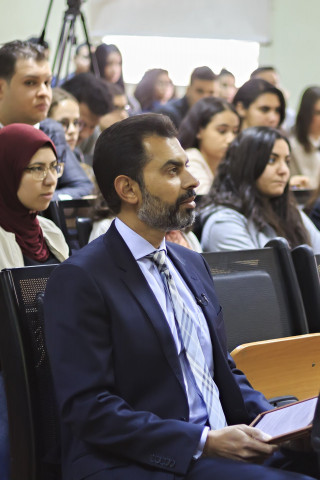Pakistan’s problems are not unique: Reza Baqir
SBP seminar highlights economic crisis faced by other emerging economies

Dr Reza Baqir. PHOTO: The British University in Egypt.
Speaking at a seminar on ‘Managing Crises in Emerging Markets’, he highlighted that seminar also aimed to demonstrate that, in addition to its mandate of formulating monetary, exchange rate and financial stability policies, SBP endeavours to facilitate constructive debate on economic issues and is open to diverse points of view.
Also present on the occasion, IMF Deputy Director for Middle East and Central Asia Athanasios Arvanitis highlighted some of the main similarities of crises across emerging markets, notably the role typically played by elevated levels of debt, high public and external deficits, inflexible exchange rates, lack of competitiveness, low saving and investment, and maturity and currency mismatches.
Despite these similarities, he emphasised that there was no one-size-fits-all model for managing crises. “Instead, the IMF focuses on different dimensions while assisting a country in developing a home-grown stabilisation programme.” The approach emphasises the need to diagnose the roots of a country’s crisis, trends and developments in the balance sheets of various economic agents, and their interconnectedness, and country-specific dynamics that affect the political economy of reforms, he added. In terms of designing stabilisation programmes, Arvanitis stressed the importance of country ownership and measures to provide support for vulnerable segments of the population. He also drew parallels for Pakistan from the experiences of managing crises in other emerging countries.
Referring to the IMF programme with Pakistan, Arvanitis remarked that it is important for the government to focus on meeting the Sustainable Development Goals (SDGs) under the UN’s 2030 Agenda. He noted that the ongoing fiscal reforms will not only put Pakistan’s public debt path on a sustainable footing but also build the foundation for providing crucial funding to meet these targets.
Speaking at the event, Pakistan Business Council (PBC) CEO Ehsan Malik presented the business community’s perspective on prevailing economic conditions and policies in Pakistan. While complimenting the SBP’s adoption of a market-based exchange rate mechanism and the improving security situation in Pakistan, he highlighted the skewed tax burden on the manufacturing sector and the need to put in place a national tariff policy that prioritises industrial promotion in the country instead of revenue generation.
Malik also highlighted the business community’s concerns about the level of interest rates in the country.
Meanwhile, Macro Economic Insights CEO Sakib Sherani highlighted various factors that he felt explained why Pakistan’s economic growth has historically not been steered towards a balanced trajectory despite the implementation of multiple IMF programmes.
In particular, he drew attention to the under-appreciation of initial conditions and negative feedback loops while designing these programmes. He agreed with the idea of adopting heterodox policies for managing crises and suggested that the efficacy of IMF programmes could be improved if they were longer, more back-loaded, and more heavily focused on structural conditionality rather than specific quantitative targets.
Published in The Express Tribune, February 16th, 2020.
Like Business on Facebook, follow @TribuneBiz on Twitter to stay informed and join in the conversation.



















COMMENTS
Comments are moderated and generally will be posted if they are on-topic and not abusive.
For more information, please see our Comments FAQ